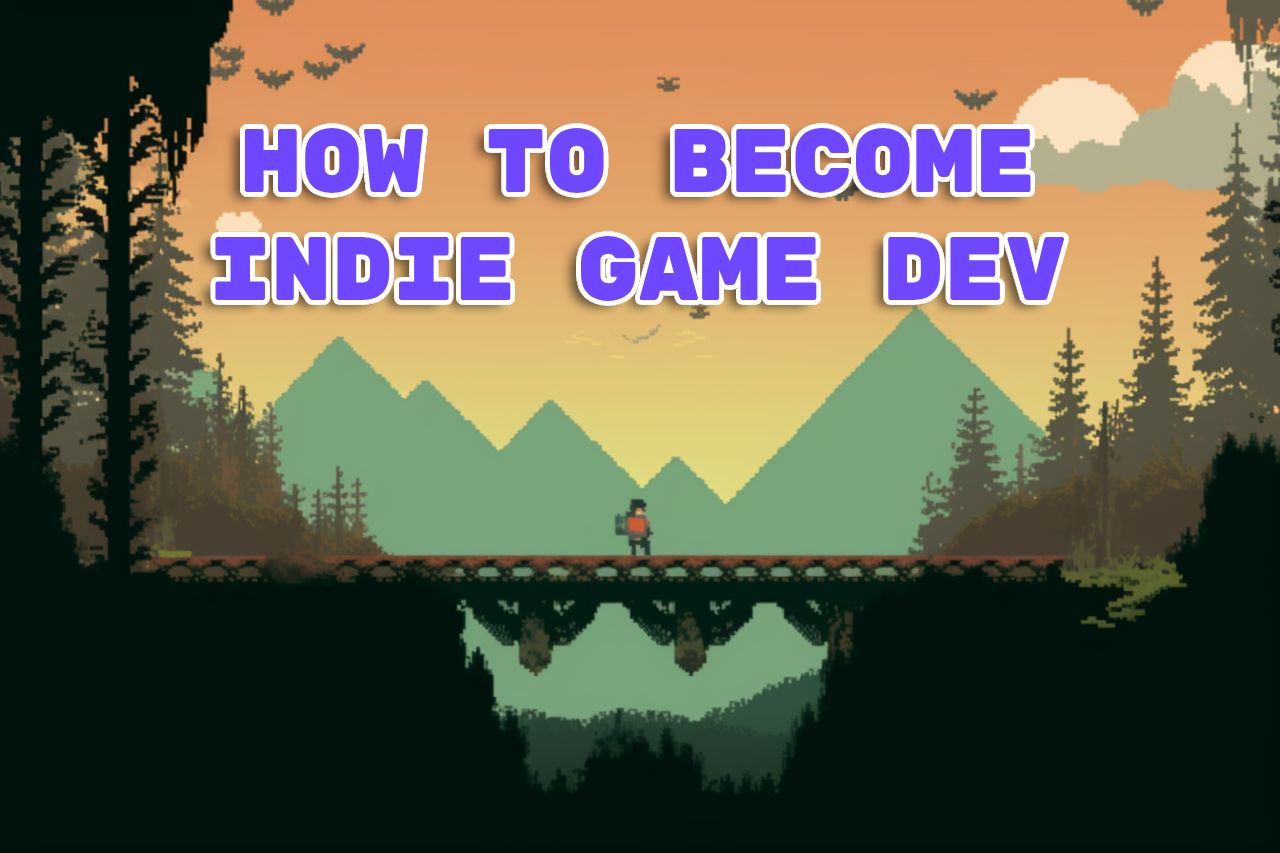Indie games are more popular these days, and they are getting better and better, but not many people know particularly about the works behind them.
If you want to be part of the indie game developer community, you need to be well-prepared; this article is your manual!
Indie Game Developer and The Rise of Indie Games in the Gaming Industry
Indie game devs are individuals or small teams that do not come from big companies.
They are human multitasking and do not have any financial or marketing support from publishers. All they have are passion, ideas, and determination to make it happen.
Indie games have come a long way in the gaming industry since the early 2000s.
SpaceWar was supposed to be the pioneer of indie games in 1977, but it had faded due to technology and financial shortages. Then in the early 1990s, with the advent of Shareware and Demoware, indie games became more accessible to players, which created a premise for development in the late 1990s with the arrival of C64, ZZT, RPG Maker,... When the internet was born in the late 2000s, indie games had a blast through digital distribution platforms such as Steam, Uplay, and itch.io,...
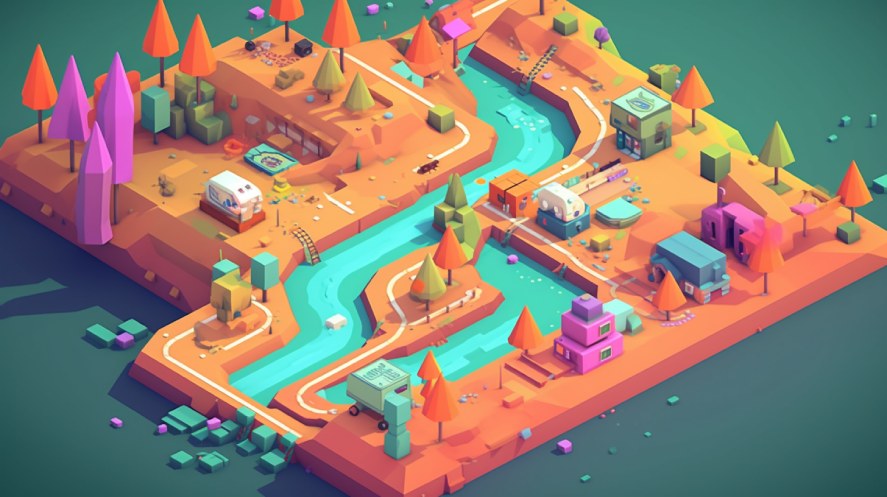
Along with the strong rise of indie games, developers have an important role in creating different experiences with their unique gameplay mechanics.
They are a major factor in making indie games gain more popularity over the years, challenging the dominance of blockbuster titles advertised widely by big studios.
If you want to learn more about indie games, check out this “What are Indie Games” article!
Benefits of Being an Indie Game Developer
The common advantage when being an independent game developer is freedom.
There is no limit to your creation. You can create more unique and innovative games without external pressures, your mind will be way too relaxed, and your games will be crafted by your own vision, which has no outside effect.
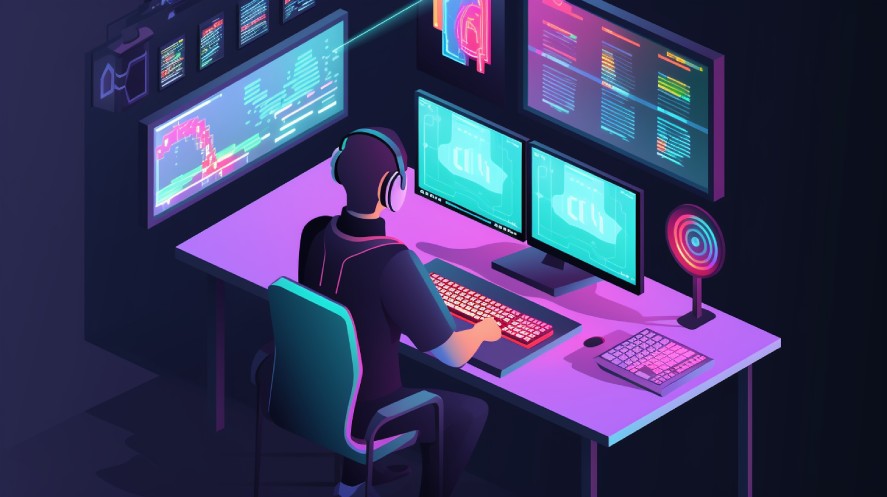
Moreover, you can also receive direct feedback from your customers or have a loyal fan base by building a close relationship with your community.
Lastly, indie developers can have significant financial opportunities because the profit from indie games is more favorable to them. Developers even can keep up to 70% of revenue from their games on platforms like Steam.
Essential Skills and Knowledge
An indie game developer needs to be equipped with a mix of essential skills and knowledge like technical, design, artistic, and soft skills.
1. Technical Skills
First, developers need to be proficient in coding language (C#, C++, Java, etc.) and game engines (Unity, Unreal Engine, Godot, etc.).
2. Design Skills
As well as technical, design skills require you to have knowledge of game mechanics and dynamics. Artistic skills, which are also necessary to indie developers to make their games lively, include 2D/3D art, animation, and sound design.
3. Soft Skills
Obviously, we can’t go any further without mentioning important soft skills such as problem-solving, adaptability, communication, teamwork (even if working solo), time management, and discipline.
Steps to Becoming an Indie Game Developer
So, how to make an indie game and publish it? Let’s see the 5 steps to becoming an indie game developer!
1. Education and Training
It is not compulsory for indie game developers to have a bachelor’s or master’s degree.
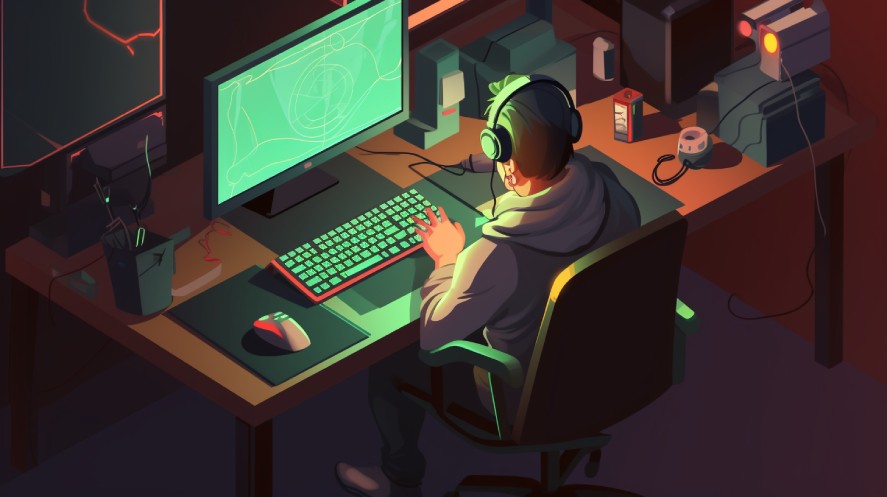
Still, you should have specialist knowledge and formal education about what you are doing, so you have to take game design courses or computer science degrees as the first step.
You can also learn some more education through online resources like tutorials, webinars, and forums.
2. Building a Portfolio
Next, building a portfolio is necessary for indie devs.
You don’t need to make your dream game at this stage; you can only think indie and start small by creating mini-games or game prototypes. You’ll gain something every time you complete a game.
Besides, showcasing diversity in your game via various genres, art styles, and mechanics are pros of your portfolio.
After that, engaging with the community is a way to refine your work, and you can acquire many opinions and feedback for your titles.
3. Networking
Following this, networking is a key that helps you gain different points of view to develop your game.
You can attend game developer conferences or any related events to interact and collaborate with other developers.
4. Funding Your Projects
Choosing which form of funding for your project is the next step.

You can use your own savings to bootstrap your game, known as self-funding, or use crowdfunding through platforms like Kickstarter or Indiegogo.
On the other side, you also have to seek out opportunities for financial support by competing with other developers.
5. Publishing Your Game
Publishing your game is almost the last thing on the way to becoming an indie developer.
However, you still have to consider between self-publishing, working with publishers, or using hybrid approaches.
5.1. Self-Publishing
When you choose to publish a game by yourself, you should have an awareness of the various available platforms such as Steam, Itch.io, Epic Games Store, mobile app stores, etc.
Moreover, you need to do a marketing strategy like building a brand and generating hype through social media or word-of-mouth in order to drive community interest and curiosity about your new game.
Lastly, you must select where you will get your game into players’ hands and manage updates.
5.2. Working with Indie Game Publishers
Obviously, you also can find other indie game publishers to work with.
It helps you to access marketing resources, no more worry about financial support, and have broader distribution networks.
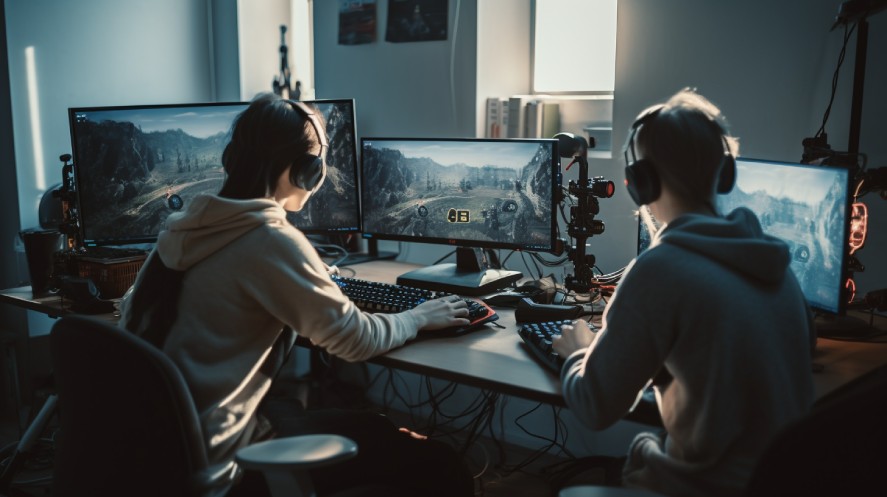
Nevertheless, it is important for an indie developer to research publishers that align with your vision. Finding the right match will help you to avoid unnecessary arguments.
Besides, you should understand the contractual nuances of a publishing agreement carefully, and some stories about indie developers who found success with publishers are examples of success.
5.3. Hybrid Approaches
On the other hand, you can use hybrid approaches to make use of the benefits of both.
It includes limited-time exclusivity deals, in which you put your game on a certain platform during a period of time and publish it on others then, and crowdfunding with game publishing support, in which you crowdfund your project and get the marketing or distribution support from publishers.
Challenges to Anticipate
You have to face more challenges when becoming an indie game developer.
The biggest issue is finance.
You may have a limited budget as an indie dev, so you need to use your available budget reasonably and the resource costs incurred.

Sometimes, you will be exhausted, and everything is burnt out; then, it’s time to balance your project development and life activities, as well as manage your stress.
One more challenge is that you have to find ways to differentiate yourself in this highly competitive market. If you anticipate these challenges, you will be more clear-sighted when dealing with them.
Tips for Success in the Indie Game World
Although there are many difficulties in the way to become indie game developers, you can proudly have a game (or more) on your own.
Here are some tips to help you succeed in the indie game world.
1. Stay updated
You have to learn new things every single day to update yourself about the latest gaming trends and technologies, as well as improve your skills and tools to develop your game.
This helps you not to stay behind in the competition.
2. Be adaptable
The gaming industry is enormous and diverse, so your adaptation is necessary.
You need to be flexible in your approach and willing to pivot. When a plan changes, you can adjust your strategy timely and intelligently.
3. Embrace feedback
One of the most important things is that you should listen to all opinions about your game, even criticism.
They are an essential tool for growth and help you to improve your game’s defects. Embracing feedback from other developers, players, or experts to make your game better.
4. Collaborate
Sometimes, two heads are better than one.
Indie game development is full of ups and downs, so it is more comfortable if you have teammates.
Your team can share experiences, ideas, or suggestions with each other, and you may see other aspects of the problem to gain more significant success.
Conclusion
Becoming an indie game developer can be a challenging but rewarding journey.
It is a blend of passion, creativity, and resilience. Although finding success among a hundred game developers is not easy, many resources like this manual are available to help you achieve your goal.
Additionally, the potential for impact is huge, and you can be one of the indie developers who craft unique experiences for players worldwide.
You should remember that every game developer starts somewhere, and you can find your place in the gaming world with persistence.

